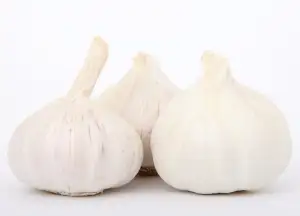Ultimate Guide to Cleaning Your Cast Iron Skillet Like a Pro

- Gather materials: coarse salt, sponge, dish soap, paper towels.
- Rinse skillet with hot water, avoiding soap.
- Sprinkle salt on skillet to act as a gentle abrasive.
- Scrub skillet with sponge to remove food residue.
- Rinse skillet thoroughly with hot water.
- Dry skillet with paper towels.
- Place skillet on stovetop over low heat to ensure complete drying.
- Once dry, apply a thin layer of oil to skillet to prevent rust.
- Store skillet in a dry place to maintain its seasoning.
Gather materials: coarse salt, sponge, dish soap, paper towels.
Before you begin cleaning your cast iron skillet, make sure you have all the necessary materials on hand. You will need coarse salt, a sponge, dish soap (optional), and paper towels. These items will help you effectively remove food residue and maintain the seasoning of your skillet. It's important to gather these materials before starting the cleaning process to ensure a thorough and efficient job.
Rinse skillet with hot water, avoiding soap.
After cooking with your cast iron skillet, it's important to clean it properly to maintain its seasoning. Start by rinsing the skillet with hot water while avoiding the use of soap. Soap can strip away the skillet's seasoning, which is crucial for its non-stick properties. Instead, rely on hot water to loosen any food particles stuck to the surface. This step will make it easier to remove residue without compromising the skillet's seasoned layer.
Sprinkle salt on skillet to act as a gentle abrasive.
Sprinkling salt on your cast iron skillet is a simple yet effective way to act as a gentle abrasive for removing stubborn food residue. The coarse texture of the salt helps to loosen stuck-on particles without damaging the skillet's seasoning. Additionally, salt is a natural and safe alternative to harsh chemical cleaners, making it an ideal choice for cleaning cast iron cookware. Just sprinkle a generous amount of salt onto the surface of the skillet and use a sponge to scrub away any remaining food debris.
Scrub skillet with sponge to remove food residue.
To effectively clean your cast iron skillet, use a sponge or scrubber to gently remove any food residue. Avoid using steel wool or harsh abrasives that can damage the skillet's seasoning. The coarse salt acts as a natural abrasive to help lift off stubborn bits of food without causing any harm to the skillet's surface. Remember to scrub in a circular motion, focusing on areas with stuck-on food particles. This step is crucial for maintaining the integrity of your cast iron skillet and ensuring its longevity.
Rinse skillet thoroughly with hot water.
After scrubbing the skillet with salt to remove any food residue, it is crucial to rinse it thoroughly with hot water. This step helps to wash away any remaining salt and food particles, ensuring that the skillet is clean and ready for future use. The hot water also helps to loosen any stubborn bits of food that may still be clinging to the surface of the skillet, making it easier to achieve a thorough clean. Once rinsed, be sure to dry the skillet completely with paper towels before moving on to the next step in the cleaning process.
Dry skillet with paper towels.
After rinsing the skillet thoroughly with hot water, it is crucial to dry it completely to prevent rusting. Use paper towels to absorb any remaining moisture on the surface of the skillet. Make sure to dry both the inside and outside of the skillet thoroughly. Any lingering moisture can lead to rust formation, which can damage your cast iron skillet over time. Proper drying is essential for maintaining the quality and longevity of your cookware.
Place skillet on stovetop over low heat to ensure complete drying.
After drying the skillet with paper towels, it's important to ensure complete drying to prevent rust. To do this, place the skillet on the stovetop over low heat for a few minutes. This will help evaporate any remaining moisture and ensure that the skillet is thoroughly dry. Be sure to keep an eye on it to avoid overheating. Once you're certain it's dry, remove it from the heat and proceed with applying a thin layer of oil to protect the skillet from rusting.
Once dry, apply a thin layer of oil to skillet to prevent rust.
Once your cast iron skillet is completely dry, it's important to prevent rust by applying a thin layer of oil. This process helps to create a protective barrier on the surface of the skillet, keeping moisture at bay and maintaining its seasoning. You can use any high smoke point oil such as vegetable oil or flaxseed oil for this purpose. Simply apply a small amount of oil to a paper towel and rub it all over the skillet, including the handle and exterior. Make sure to wipe off any excess oil to avoid a sticky residue. This simple step will help prolong the life of your cast iron skillet and keep it in top condition for years to come.
Store skillet in a dry place to maintain its seasoning.
To maintain the seasoning of your cast iron skillet, it is crucial to store it in a dry place. Excess moisture can lead to rust and damage the seasoning you've worked hard to build up. After cleaning and drying your skillet thoroughly, make sure it is completely free of any water before storing it. You can place a paper towel inside the skillet to absorb any lingering moisture. Store the skillet in a cool, dry place away from any sources of humidity or moisture, such as under the sink or near a dishwasher. By storing your cast iron skillet properly, you can ensure that it remains in top condition for many years to come.
Published: 12. 04. 2024
Category: Home



